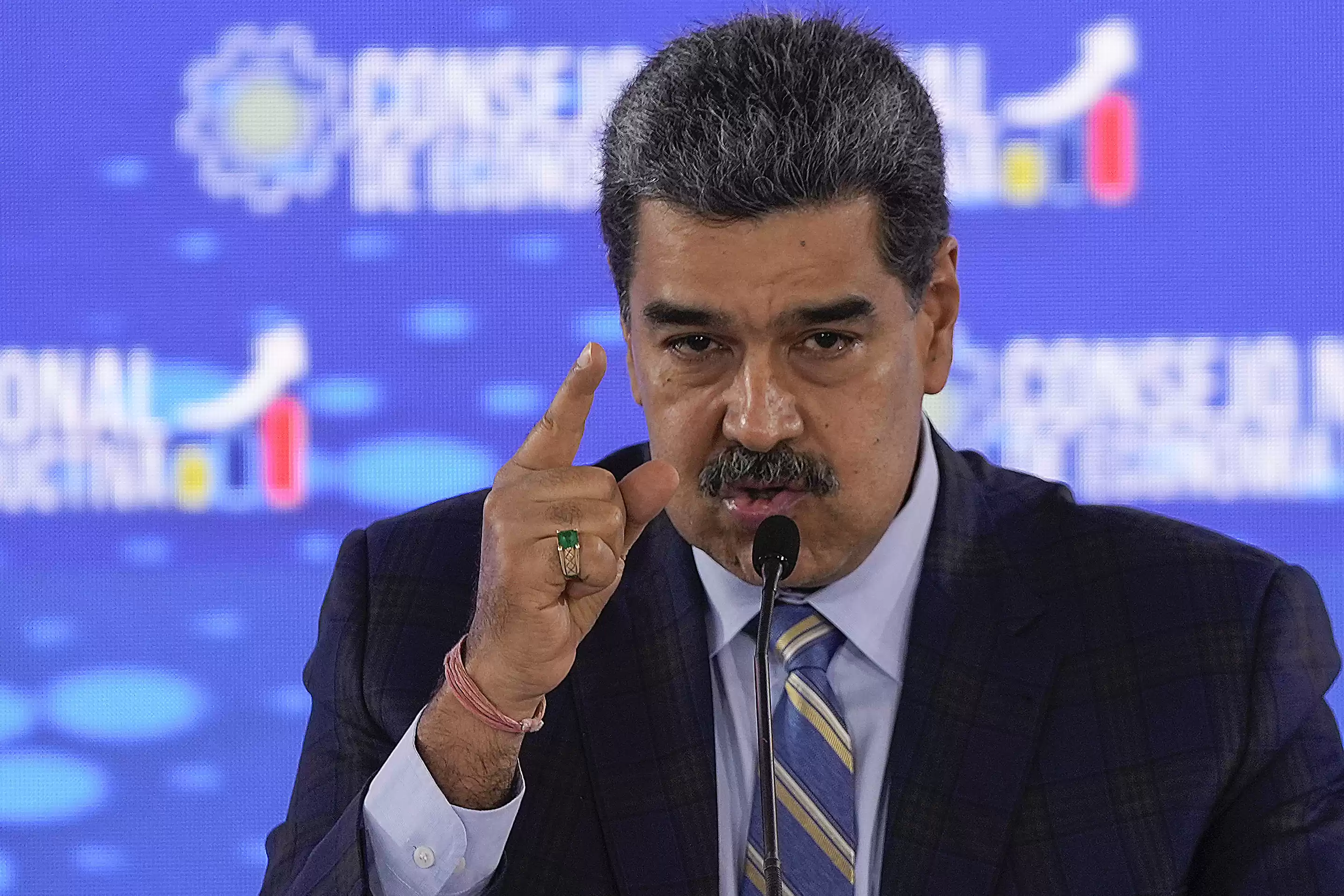Biden Eases Sanctions on Venezuelan Oil; Republicans Howl
The US Treasury Department has announced that it will temporarily lift sanctions on Venezuelan oil exports and gold for six months, with the option to amend or revoke the authorizations if President Maduro fails to fulfill his commitments. The move has drawn criticism from Republicans, who argue that it supports oppressive regimes and threatens US national security. However, Latin American scholars and energy analysts see it as a positive step towards stabilizing Venezuela's oil industry, which has been plagued by underinvestment and mismanagement.
The Treasury Department has announced that it will lift sanctions on exports of crude oil, refined petroleum, and gold from Venezuela for a six-month period. This decision is contingent upon Venezuelan President Nicolas Maduro following through on his commitment to allow independent candidates to run in the upcoming presidential election and to allow international election experts and media to monitor it. The United States government retains the authority to amend or revoke these authorizations if Maduro fails to fulfill his promises.
Diego Abente-Brun, a Latin American scholar, views this agreement as a significant step forward, noting that reaching any agreement with the country's opposition is an accomplishment in itself. While he remains cautious, Abente-Brun is optimistic about the potential for positive change in Venezuela.
However, not everyone is pleased with the lifting of sanctions. Republican lawmakers, including Senator Lisa Murkowski and Senator John Barrasso, have criticized the decision, arguing that it provides financial support to oppressive regimes while hindering environmentally responsible development in the United States. Senator Kevin Cramer has even proposed a bill to prohibit the importation of crude oil and other fossil fuels from Venezuela and Iran.
The United States has been imposing sanctions on Venezuela since 2008, with the Trump administration intensifying them in 2017 and 2019. Despite being rich in crude oil reserves, Venezuela's oil industry has suffered from decades of underinvestment and mismanagement, resulting in a decline in production. Restoring output will require foreign investments, but companies are hesitant due to past experiences of non-payment and instability in the country.
While the lifting of oil sanctions may not have an immediate impact on global oil prices, it could lead to a medium-term increase in production. Market analysts predict that this increase would be relatively small in the global context but still had a slight downward effect on oil prices when the news of the deal broke.
The Biden administration faces pressure to address high oil prices, which have been a source of criticism from Republicans. However, U.S. crude oil production is expected to set records this year and exceed them next year, contradicting claims that the administration is throttling fossil fuel production.
In addition to the Venezuelan deal, other factors affecting oil prices include tensions in the Middle East, particularly regarding Iran's oil exports and its funding of Hamas. The Biden administration is considering tightening enforcement of sanctions on Iranian oil exports, which could cause oil prices to spike.
Overall, while the lifting of sanctions on Venezuelan oil exports may have some impact on the global oil market, it is unlikely to be significant compared to other geopolitical factors. The situation in Israel and Iran remains the primary concern for oil prices.











Comments on Biden Eases Sanctions on Venezuelan Oil; Republicans Howl